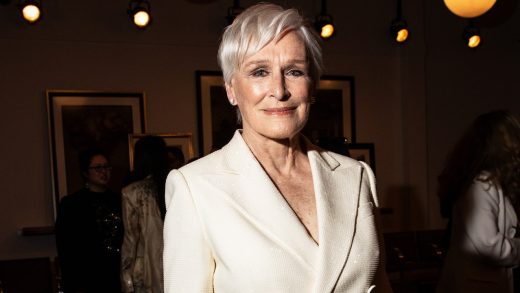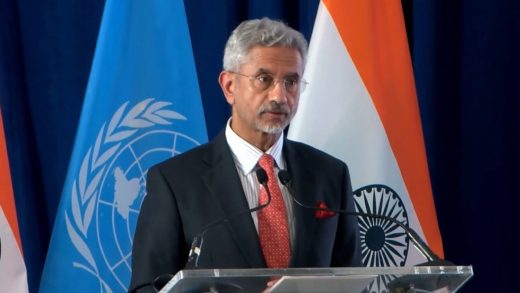This is the second instalment of a Global News series called Unheard. Unserved. Maritime Women’s Health In Crisis.
In our first story, we introduced you to a New Brunswick woman who struggled for more than two years to get a PCOS diagnosis.
It’s something that still haunts 43-year-old Judit Julia: being told she has cancer while beginning fertility treatments.
Originally from Spain, Julia moved to Canada in 2013 after living in many different countries, such as Finland and Austria. She says that after experiencing Nova Scotia’s health-care system first-hand, it’s one of the worst systems she has seen.
“In Nova Scotia in general, it’s very behind. I think they are maybe 20 years behind,” Julia said. “I think here, there is a lot of things that they could do and they don’t.”
After moving from Halifax to Truro in 2020, Julia says she wanted to start a family of her own and after some thought, decided to start fertility treatments. She added that being single wouldn’t stop her.
Julia says she waited an unusual amount of time before being scheduled with a doctor at the only fully operating fertility clinic in Atlantic Canada: Atlantic Fertility Clinic.
After speaking with some other women attending the clinic, she said she found out others were being booked in for appointments before her.
“They put me on the waiting list, and I stayed there for over one year. I spoke with one of the girls and she was waiting for just six months, and I was over a year,” Julia said.
After waiting over a year, she called the clinic and was then booked to see a doctor.
Her next step after the appointment was to get blood tests and a Pap smear done before starting the intrauterine insemination (IUI) process. According to IVF Canada’s website, IUI is a procedure in which a sperm sample is collected and prepared to be directly transferred into a woman’s uterus.

Get weekly health news
Receive the latest medical news and health information delivered to you every Sunday.
However, after the clinic received her test results, Julia says doctors told her the results were concerning and she should have the tests done again. She says the clinic didn’t tell her what was wrong.
This time, Julia’s results were worse than before — or so she thought.
“I was driving. I was going to work. The nurse told me I might have cancer, and we couldn’t go ahead,” Julia said. “I was freaking out…. I was like crying all day.”
Julia says she had to pull her car over while she was told she couldn’t continue treatment because of the cancer.
Distraught, she says she called the clinic back at lunchtime to go over the results, but she says they told her they had mixed up her second test results with the first ones.
Continuing the fertility journey
Despite the cancer scare, Julia says she wanted to leave the mistake in the past and continue with the IUI process.
However, after doing her own research and discussing with a trusted friend, she says she later realized IUI treatment might not be as effective for her as other options, like in vitro fertilization (IVF). The IVF Canada website describes IVF as a process in which an egg is fertilized outside of the woman’s body and then transferred to the woman’s uterus. The website adds it is the most commonly used treatment to increase a woman’s chance of pregnancy.
After spending almost $40,000 throughout her entire fertility journey, including her switch to IVF — which included many hormone injections and insemination prep — Julia was told after egg retrieval that she didn’t have many eggs to begin with. They were only able to retrieve a single egg and she says it was not viable.
Julia says she was not informed about the factors that could impact the success of her fertility treatments, such as her age, before she spent a large sum of money.
“Usually in retrieval, it’s seven, 15 eggs. They could get one,” Julia said. “All that money since the beginning, and they didn’t even check if I had eggs.”
Dr. Jenna Gale, a fertility specialist at the Ottawa Fertility Centre who is not familiar with Julia’s case, says that although IVF has improved drastically since its first success in 1978, it still has its limitations, and the odd patient may not get the outcome they wanted.
“Unfortunately, the retrieval is the only way we actually find out how many eggs we can get to,” Gale said. “IVF itself, I would say, is quite successful for the majority of patients who are accessing IVF care. But unfortunately, it may not be the answer for everybody.”
She says age and weight can factor into the success of a pregnancy during fertility treatments.
“The most important driving factor behind the odds of success of the person with the egg is their age. And that’s because we’re born with all of the eggs that we’re ever going to have in our body. And the longer they’re in our body over time, the more chance of them becoming genetically different from normal,” Gale said.
“So, fertility treatments, they can improve the odds of success of achieving pregnancy with more advancing age. But unfortunately, it’s still very limited based on age. And at the age of 40, 44 or 45 and beyond, unfortunately, those odds of success approach about one per cent or less.”
A fertility specialist at Atlantic Fertility Clinic who did not treat Julia, Dr. Heather Cockwell, says most doctors at the clinic are also working at the IWK and Dalhousie University.
She says more primary doctors could have helped minimize the workload and maybe could have prevented Julia’s cancer scare.
“I do think the lack of primary care does play into sort of loss, loss to follow-up, but also loss of diagnosis of stuff that otherwise would be seen,” Cockwell said.
“The primary care physician can do that initial workup, and they can help us streamline our triaging better, which means I can get the patient to the most appropriate treatment, if necessary, sooner. So, then that means that they can get pregnant, hopefully, sooner.”
After finding out she didn’t have any viable eggs, Julia says the doctor asked if she wanted to try IVF again or get a donor egg.
“It’s a lot of money and also, it’s hard on the body. So, I didn’t want it to go through again,” she said “I think because I am overweight, because I was older, they treat me wrong.”
Julia says her next steps to have the family she’s dreamed of is to look into adoption.





